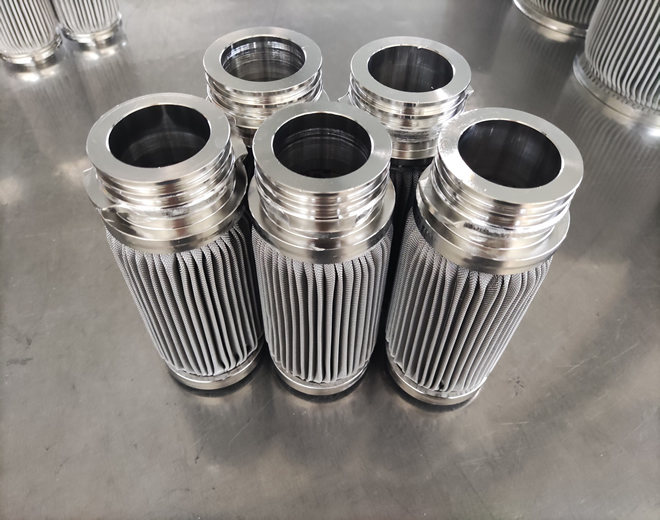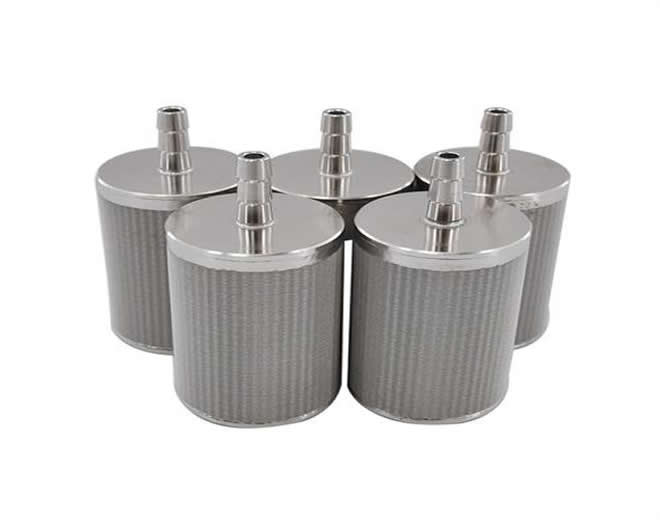Core Advantages of Sintered Mesh Filter Elements
1. Overview
Sintered mesh
filter elements are high-performance filtration components made by sintering multiple layers of woven metal wire mesh under high temperatures.
They offer excellent structural stability, high filtration precision, and mechanical strength, making them ideal for demanding industrial applications in petroleum,
chemical processing, food and beverage, pharmaceuticals, water treatment, and aerospace sectors.
2. Structural Features
A typical sintered mesh filter element is composed of five layers of stainless steel wire mesh, including:
Protective layer
Dispersion layer
Precision filtration layer
Strengthening layer
Support layer
These layers are sintered together in a vacuum furnace to form a rigid and integrated porous structure, ensuring consistent and efficient filtration performance.
3. Core Advantages
1) Excellent Structural Stability
The sintering process bonds the mesh layers into a solid structure that resists deformation under high pressure and temperature, ensuring reliability in harsh operating conditions.
2) Consistent Filtration Precision
With uniformly distributed pore sizes, sintered mesh filter elements provide stable and repeatable filtration efficiency. Common filtration ratings range from 1 to 200 microns, suitable for critical applications requiring precise particle control.
3) High Temperature and Corrosion Resistance
Made from stainless steel, duplex steel, or other corrosion-resistant alloys, these filters can withstand high temperatures (up to 480°C or more) and aggressive chemical environments, including acids, alkalis, and saline media.
4) High Mechanical Strength
Compared to traditional filter materials like paper or fiber-based filters, sintered mesh filters exhibit superior compressive strength and durability, ideal for high-pressure and high-flow systems.
5) Washable and Reusable
Sintered mesh filters support various cleaning methods, such as backflushing, ultrasonic cleaning, or solvent washing. This reusability reduces operational costs and environmental impact.
6) Customizable Design
The filter can be tailored in terms of pore size, number of layers, material, and geometry to meet specific system requirements, offering flexibility across industries.
4. Typical Applications
Oil & Gas: Dehydration, catalyst recovery, and solid-liquid separation
Chemical Processing: High-temperature organic filtration
Pharmaceutical & Food: Sterile and particle filtration
Water Treatment: RO pre-filtration, ultrapure water systems
Metallurgy & Machinery: Hydraulic oil, lubrication system filtration
5. Conclusion
Sintered mesh filter elements combine multilayer construction with sintering technology to achieve high strength, fine filtration, corrosion resistance, and long service life.
As industries demand more efficient and reliable filtration solutions, these filters stand out as indispensable components in advanced filtration systems.


